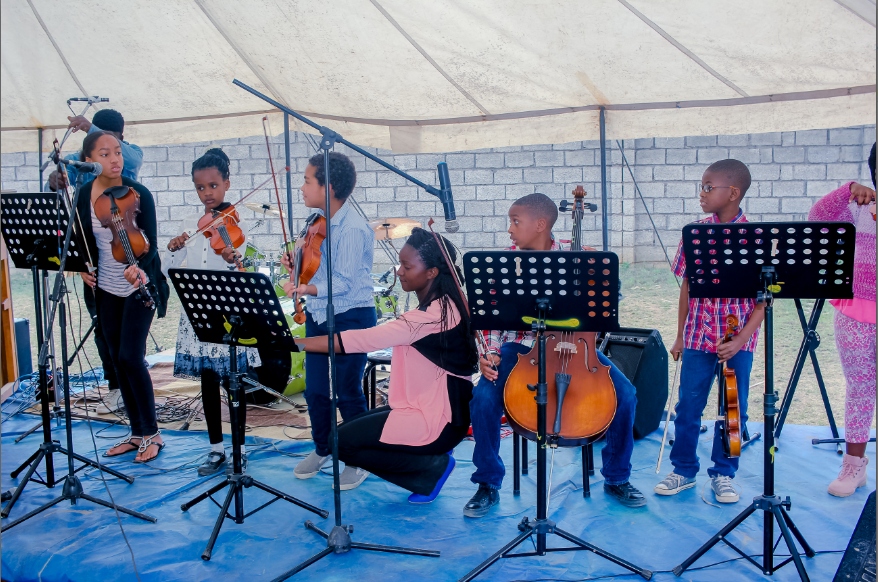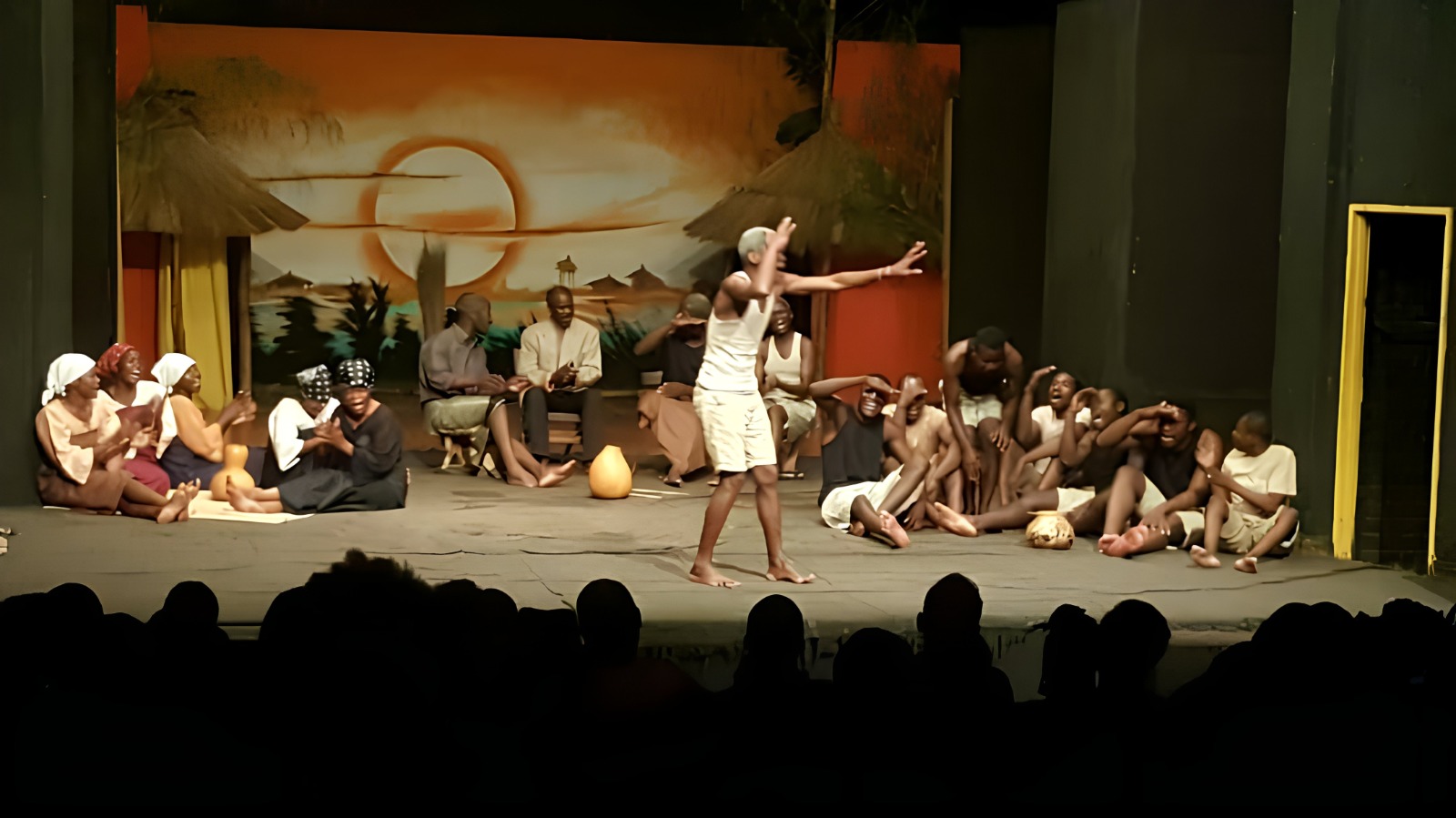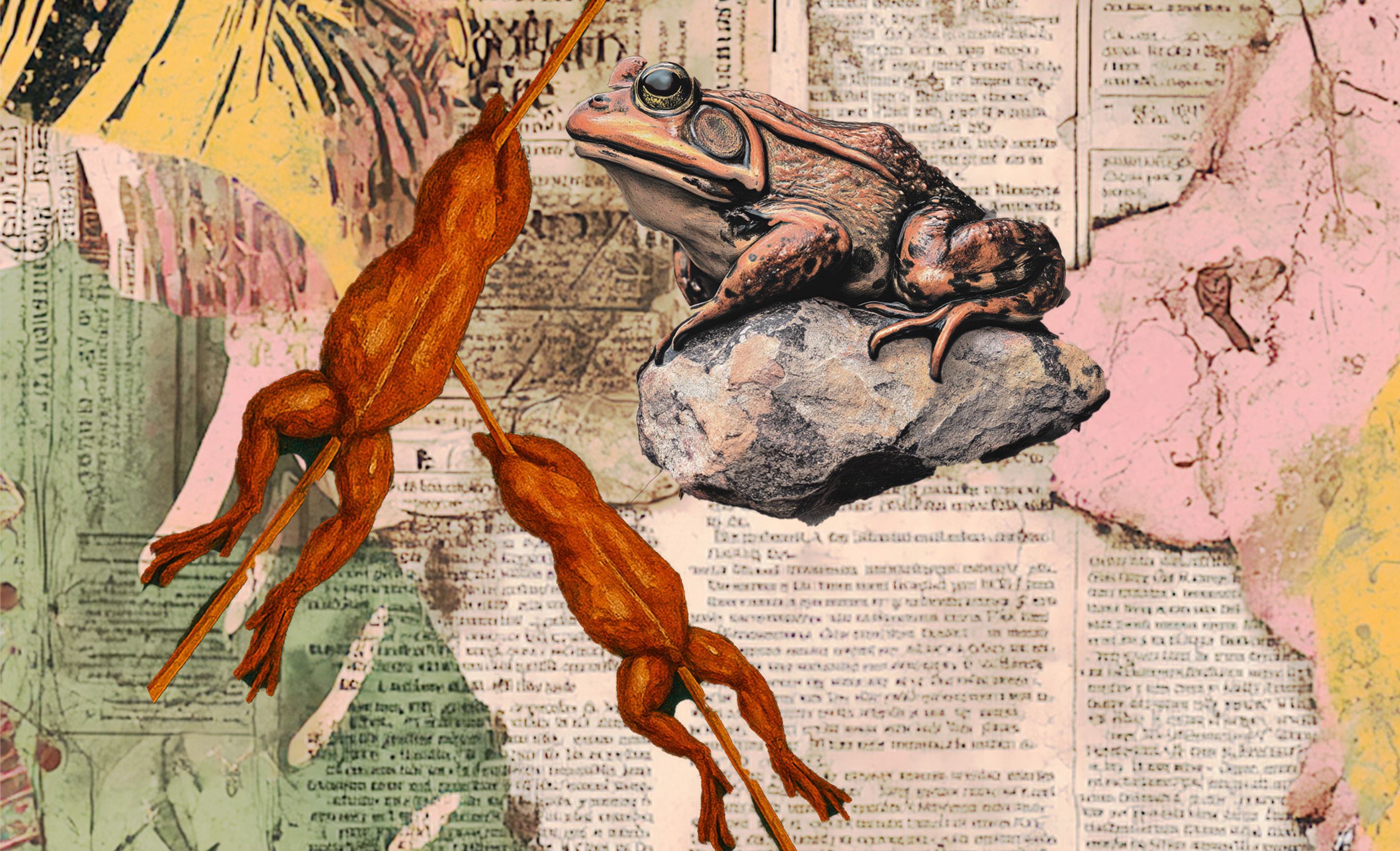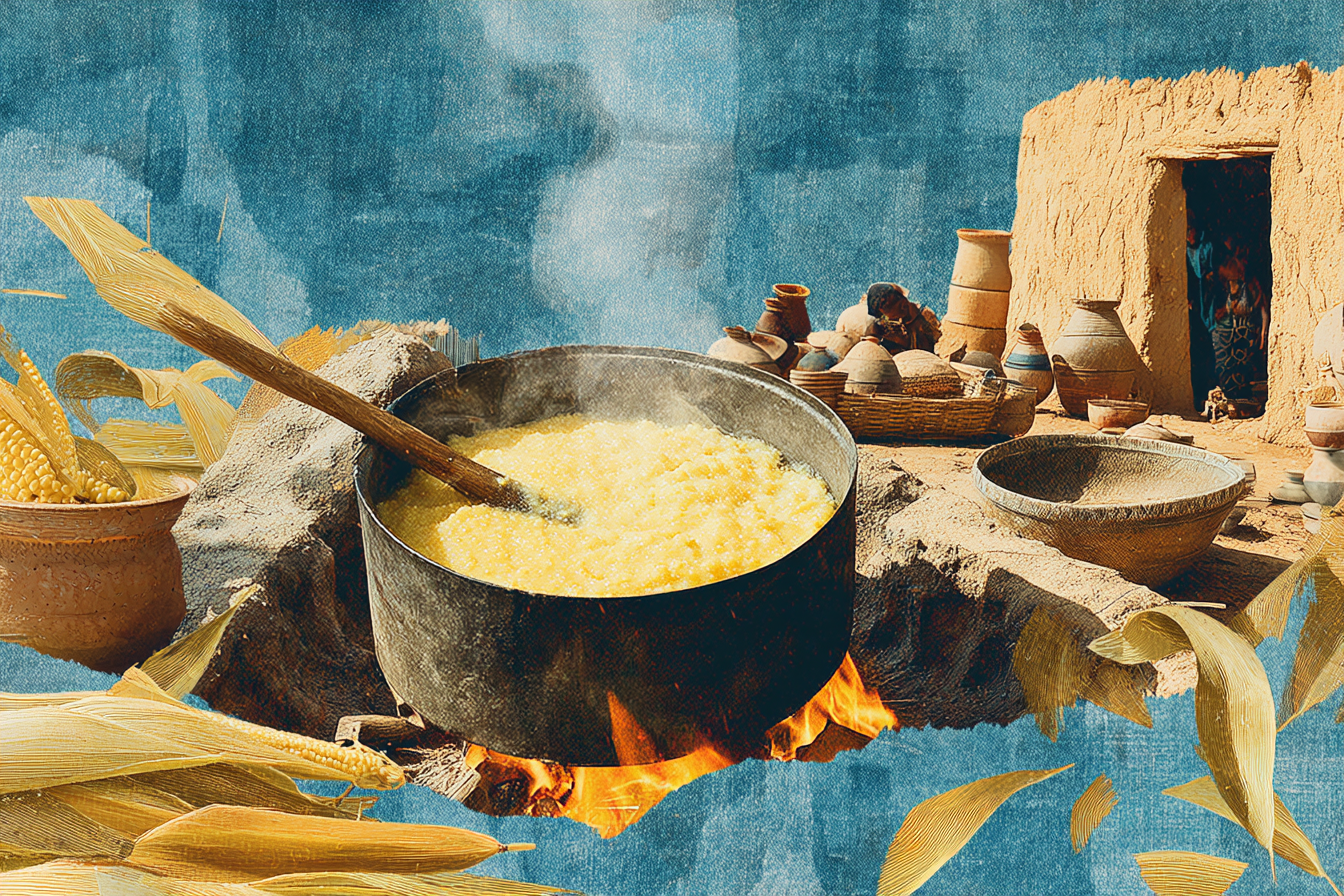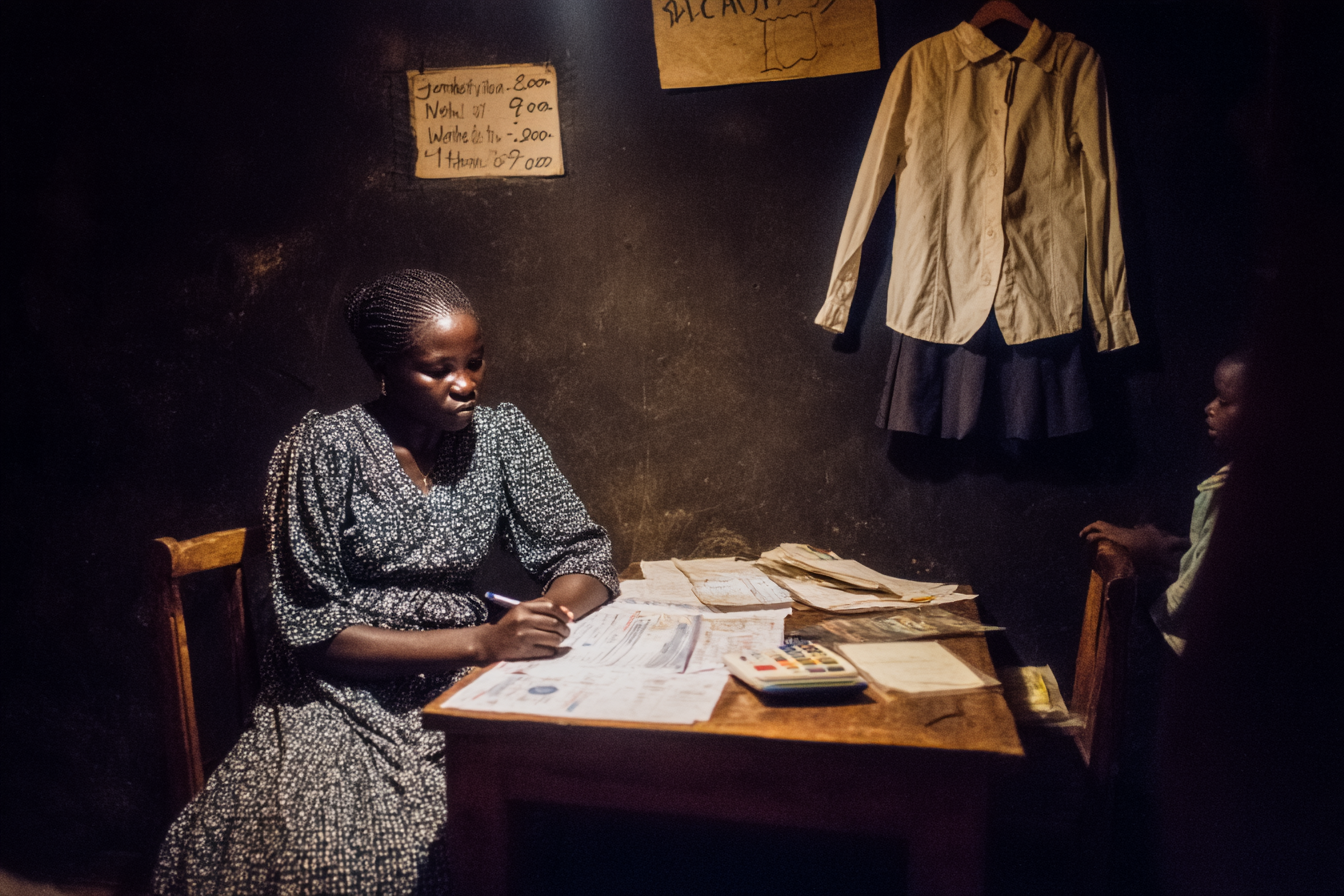Celebrating 10 years of Music Excellence
Ngoma Dolce Music Academy is Zambia’s first tuition centre for music training in instruments and voice. The academy tutors students from a beginner level as well as those who would like to polish up their skills and those who would like to sit formal examinations. Ngoma Dolce is the only centre for examinations in Zambia under the UK’s Associated Board of Royal Schools of Music (ABRSM). This means they use an internationally recognised syllabus and provide examinations.

After a choir practice Moses Kalomo and Professor Paul Kelly sat down and had a conversation about the fact that there was nobody in the music business providing larger resources in instrument and voice training. After a few more conversations and deciding on their vision, Kalomo and Professor Kelly opened the Academy on the first of April 2010.
Ngoma Dolce offers tuition in a variety of classical instruments ranging from piano, violin, viola, cello, flute, clarinet and guitar. They also offer classes for electric drums and Zambian traditional drums as well as acoustic drums. More recently they introduced the ukulele for the younger children. Music for Fun is an introductory music course for children from ages three and a half to six years old. The academy wants children to be introduced to the different types of instruments and allow for teachers to nurture their interest by allowing them to focus on one or two specific instruments. The idea is to limit the number of instruments a child eventually studies in order to foster and nurture one talent so that it can grow and reach its full potential.

Fanny Makala, the administrator at Ngoma Dolce Academy shares, “We believe in teaching children to look at what they are interested in, what they can do with that and how to hone that skill. The Music for Fun class is an avenue of exploration which allows the children to experiment so that when they get to ages five and six, they can now sit and say they want to do the piano or another instrument. We then encourage our students to sit for examinations.”
Ngoma Dolce not only takes training in instruments seriously but also prioritises voice training. “The voice is an instrument on its own. It is a delicate part of the body if not handled well. We believe in training students to develop a good vocal range. We at Ngoma Dolce believe that people should understand the way to look after the voice. You need to train the voice if you intend on using it to sing,” Fanny tells me.
Ngoma Dolce provides instruments for tutoring sessions and also offers students who don’t have instruments rehearsal time in the morning before the afternoon classes begin. They also have instruments and books on sale. They stock guitars, pianos, violins and all that’s needed is a percentage of payment to commit to the purchase.
It is no secret that music education in the average Zambian school is not a priority. Fanny explains, “Today if we walk into an ordinary school and said let’s learn music at the level that Ngoma Dolce teaches music a parent may say ‘Where will music take you’? But music gives people a sense of concentration, a sense of belonging, a way of knowing that in this busy world when you sit down to play music it’s slows things down and calms you. There are people that don’t go into prayer, people who don’t go into meditation but music helps heal a lot of things.”
Sponsored by charities from Canada and England the academy was tasked with selecting local schools and students to sponsor. At first this was challenging and after selecting students and paying for their lessons not many came in regularly. However, the academy quickly changed strategies and decided to work with schools at a grassroots level. They selected St Thomas, which is a local community school. Sixty-seven students were chosen for weekly tuition. They are studying voice, drums, guitar, piano lessons and there are three students on the violin. Even with the challenges faced in finding students to support, the Ngoma Dolce team persevered as they wanted to give back to the local community and help discover and nurture talent.
The effects of COVID-19 cannot be ignored when running any business, especially one like Ngoma Dolce which requires students to attend classes. The academy has adapted with a mix of both in-person and online classes to help decongest their premises. A number of strict measures are in place for in-person classes.
In recent months the academy started offering math, English and science tuition and they offer examinations as well. The hope is that during this time of COVID-19 they can take the opportunity to give lessons to underprivileged children that have not received any formal education.
Highlights over the last ten years include the fact that students sponsored by Ngoma Dolce have transitioned into teaching at international schools in Zambia. In 2017 the academy held its first ever music festival that featured the likes of Maureen Lilanda. Over two-hundred guests attended and enrolments increased thanks to the success of the well-publicised festival.
The future has a lot in store for Ngoma Dolce; this musical haven has plans to expand. Presently, due to COVID-19, there are 100 students enrolled but the academy is striving to get to two-hundred and fifty students by September next year. There are also plans to build an auditorium on the school grounds which will not only benefit Ngoma Dolce but the entire community as people would be able to hire out the auditorium for different events. There are also plans to help develop a better music curriculum for the public school system by setting up programmes where every child can get an opportunity to learn and play an instrument or train their voice.
